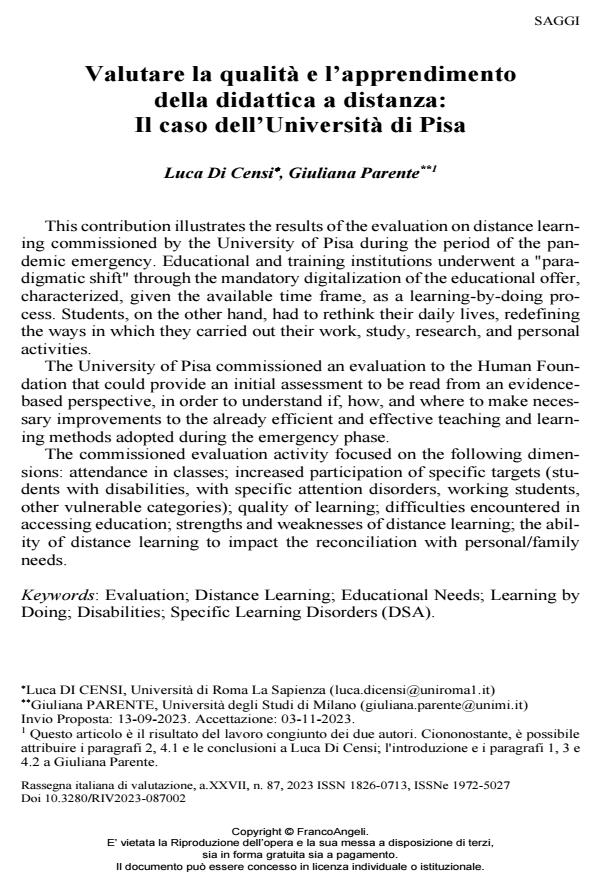Valutare la qualità e l’apprendimento della didattica a distanza: Il caso dell’Università di Pisa
Journal title RIV Rassegna Italiana di Valutazione
Author/s Luca Di Censi, Giuliana Parente
Publishing Year 2024 Issue 2023/87
Language Italian Pages 21 P. 11-31 File size 429 KB
DOI 10.3280/RIV2023-087002
DOI is like a bar code for intellectual property: to have more infomation
click here
Below, you can see the article first page
If you want to buy this article in PDF format, you can do it, following the instructions to buy download credits

FrancoAngeli is member of Publishers International Linking Association, Inc (PILA), a not-for-profit association which run the CrossRef service enabling links to and from online scholarly content.
This contribution illustrates the results of the evaluation on distance learn- ing commissioned by the University of Pisa during the period of the pan- demic emergency. Educational and training institutions underwent a "para- digmatic shift" through the mandatory digitalization of the educational offer, characterized, given the available time frame, as a learning-by-doing pro- cess. Students, on the other hand, had to rethink their daily lives, redefining the ways in which they carried out their work, study, research, and personal activities. The University of Pisa commissioned an evaluation to the Human Foun- dation that could provide an initial assessment to be read from an evidence- based perspective, in order to understand if, how, and where to make neces- sary improvements to the already efficient and effective teaching and learn- ing methods adopted during the emergency phase. The commissioned evaluation activity focused on the following dimen- sions: attendance in classes; increased participation of specific targets (stu- dents with disabilities, with specific attention disorders, working students, other vulnerable categories); quality of learning; difficulties encountered in accessing education; strengths and weaknesses of distance learning; the abil- ity of distance learning to impact the reconciliation with personal/family needs.
Keywords: Evaluation; Distance Learning; Educational Needs; Learning by Doing; Disabilities; Specific Learning Disorders (DSA).
Luca Di Censi, Giuliana Parente, Valutare la qualità e l’apprendimento della didattica a distanza: Il caso dell’Università di Pisa in "RIV Rassegna Italiana di Valutazione" 87/2023, pp 11-31, DOI: 10.3280/RIV2023-087002